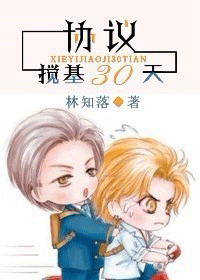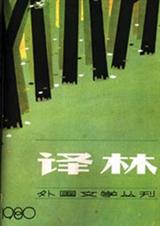30+mba-第37部分
按键盘上方向键 ← 或 → 可快速上下翻页,按键盘上的 Enter 键可回到本书目录页,按键盘上方向键 ↑ 可回到本页顶部!
————未阅读完?加入书签已便下次继续阅读!
or key accounts。
Span of control
The number of people a manager can have reporting to them in a hierarchy
is governed by the span of control。 Few people reporting and the span of
control is termed as narrow; and more as wide。
A narrow span of control means that any one manager has fewer people
reporting to them; so munications should be be。。er and control easier。
However; as the organization grows; that usually means creating more and
more layers of management; so negating any earlier efficiency。
A wide span of control; also known as a flat management structure; involves
having many people or units reporting to one person。 This usually
means having fewer layers of management; but it does call for a greater
level of skill from those doing the managing。 The nature of the tasks being
carried out by subordinates will limit the capacity to run a flat organization。
For example; a regional manager responsible for identical units such as
branches of a supermarket chain; supported by good and well…developed
control systems; may be able to have 10 or more direct reports。 But if the
organization prises very different types of unit; for example retail outlets;
central bakeries; garages; factories; accounts departments and sales
teams; the ability of any one manager to handle that diversity will be
limited。
A further factor to take into account is the skill level of both managers
and managed。 A higher…skilled workforce can operate with a wider span of
control as they will need less supervision and a higher…skilled manager can
control a greater number of staff。
Line and staff organization
One way to keep an organization structure flat as the enterprise gets bigger
and more plex is to introduce staff functions that take over some of
the mon duties of unit managers。 For example; a production manager
Figure 4。2 Basic hierarchical organization chart
Employee 1
(Or Unit 1)
Employee 2
(Or Unit 2)
Employee 3
(Or Unit 3)
Top
Management
124 The Thirty…Day MBA
could probably handle their own recruitment; selection and training of staff
while they have a dozen or so people in their domain。 Once that expands to
hundreds; and if growth is also impacting on other management areas such
as sales and marketing; then it may be more efficient to create a specialist
HR unit to support the line managers。
Staff positions support line managers by providing knowledge and
expertise but the buck ultimately stops with the line manager。 Three types
of authority are created in a line and staff organization; so alongside some
efficiencies lies the possibility for conflict:
。 Line authority goes down the chain of mand; giving those further
up the right and responsibility to instruct those below them to carry out
specific tasks。
。 Staff authority is the right and responsibility to advise line managers in
certain areas。 For example; an HR staffer will advise a line manager on
redundancy terms; conditions of employment and disciplinary issues。
。 Functional authority or limited line authority gives a staff person the
ultimate sanction over particular functions such as safety or financial
reporting。
There are possibilities for conflict in the relationship between line and staff
but these can be minimized in two ways。 In the first instance staff people
report to their own superiors who have line authority over them。 Second;
line and staff personnel can be organized into teams with shared goals and
objectives (Figure 4。3)。
Figure 4。3 Line and staff organization chart
Functional organization
In a functional organization (Figure 4。4) the staff and line managers all
report to a mon senior manager。 This places more of a burden on senior
management who have a wider span of control and a greater variety of
tasks for which to take responsibility。 However; this structure concentrates
all responsibility in one person and so minimizes the area for conflict。 It
may also deny an organization the high level of expertise that es with
having a professional staff function。 For example; this would leave the onus
Top Management
Accounts
Unit 1
Human Resources
Unit 2
Organizational Behaviour 125
for being fully conversant with current employment law on a production
manager; rather than giving them access to staff advice。 They can; of course;
read up on the law themselves; but that is not quite as good as having it as
a part of an everyday skill and experience base。
Matrix organization
A matrix organization gives two people line authority for interlocking areas
of responsibility。 In Figure 4。5 you can see that a manager is responsible for
sales of product group 1 in both Europe and Asia。 However; a manager is
also responsible for the sales of all product groups within their continent。
The aim of a matrix structure is to ensure that all key areas in an organization
have a line manager responsible for championing them。 There is still
the possibility for conflict of interest。 For example; the person responsible
for a product group may try to get more a。。ention for their product in a
particular market than it really warrants。 In theory; the managers in matrix
organizations are senior enough to iron out their differences。 That is not
Figure 4。4 Functional organization chart
Figure 4。5 Matrix organization chart
Product
Group 1
Marketing Accounts Manufacturing Marketing Accounts Manufacturing
Product
Group 2
Product
Group 3
Business Area
Heads
Top
Management
Group
Europe Top
Management
Asia Top
Management
Marketing
Top
Management
Sales Accounts
Human
Resources Manufacturing
126 The Thirty…Day MBA
always the case in practice and in such cases their mutual boss has to
resolve the issue。
Strategic business unit (SBU)
SBUs (Figure 4。6) are in effect separate enterprises with full responsibility
for their own profit or loss。 They may themselves be organized in any one
of the above structures。 If they don’t have their own specialist staff function;
they may buy it in from the parent pany when required。 This maintains
the concept of full profit accountability。
SBUs are further divided into those that simply have control over current
revenue and expenditure and those ‘investment centres’ that can make
capital expenditure decisions such as se。。ing up a new plant; investing in
research and development or buying up petitors。
Figure 4。6 Strategic business unit organization chart
Accounts Human Resources
Sales and Marketing Manufacturing
Strategic Business Unit 1
Europe
Accounts Human Resources
Sales and Marketing Manufacturing
Strategic Business Unit 2
Asia
Top management
Succession planning
No general would fight a ba。。le without having a reserve force ready to plug
gaps that appear in the front line or are caused by casualties in key staff。
Perhaps the most spectacular military example was the rapid deployment
of Montgomery to head the 8th Army when Churchill’s own preferred
candidate; ‘Strafer’ Go。。; was killed flying back to Cairo。
For business and other organizations this reserve is usually limited
to the process of identifying future potential leaders to fill key positions
when staff leave or are themselves promoted。 A subsidiary but nonetheless
important role of any organization chart is to facilitate this planning。
Elements to consider in this area include:
。 broadening existing managers’ petences by lateral moves in the
organization;
。 training and development across a wider skill base than is required for
current roles;
Organizational Behaviour 127
。 having a database of outsiders who can rapidly be approached by head
hunters (specialist recruitment consultants) when the need arises。
Teams
Teams are the ponent parts of a business’s structure and their effective
creation and operation are a key way to get exceptional results from an
organization。 A group of people; even if they work together; are not necessarily
a team。 Look at Figure 4。7; which pares some of the characteristics
of a sports team with those of a random collection of people that meet for a
game。 You can see immediately wha



